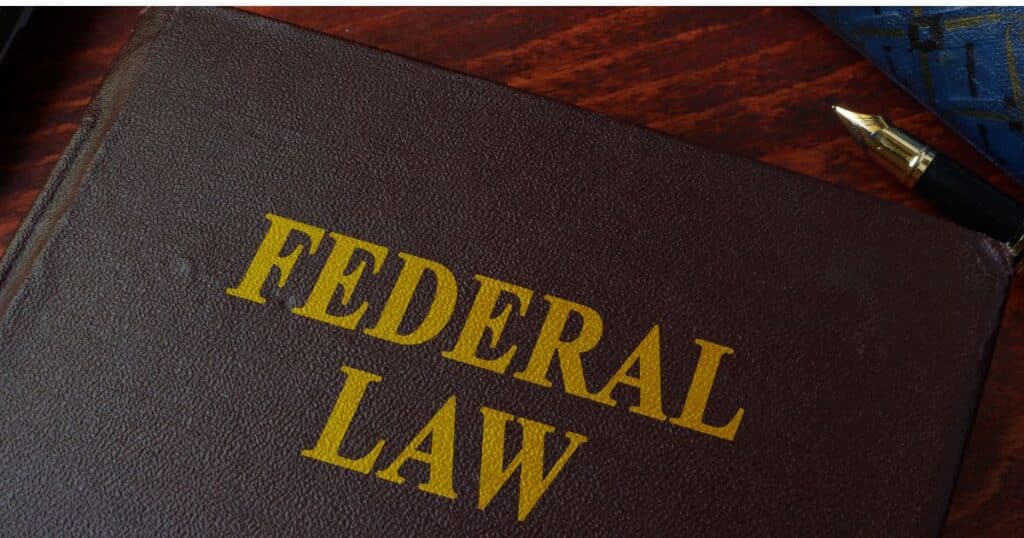In a recent viewpoint published in JAMA Network, Mason Marks, MD sheds light on the parallels between psychedelics and cannabis when it comes to state and federal regulations. Just like cannabis, which has been legalized for medical or recreational use in many states while still being illegal under federal law, psychedelics are heading down a similar road.
As more and more states begin to legalize psychedelics for medical or therapeutic use, each state is setting up its own market with different regulations and compliance measures. However, as Marks points out, this could lead to conflicts with federal regulatory models that may attempt to override existing state structures.

This issue has already been seen in the cannabis industry, where states have had to navigate the complexities of their individual regulations while also complying with federal law. And now, the same dilemma is arising for psychedelics.
But how did we get here? Let’s take a closer look at the regulatory landscape for cannabis and psychedelics to better understand this conundrum. So, let’s dive in! Stay tuned for more about psychedelic regulations in the next section.
The Regulatory Landscape for Cannabis and Psychedelics
The legalization of cannabis and psychedelics has sparked a debate between state and federal regulations. On one hand, several states have passed laws to legalize these substances for medical or recreational use, while on the other hand, they are still considered illegal under federal law.
This conflicting landscape has created a patchwork of regulations across the country, with each state having its own set of rules and compliance measures. For example, some states only allow medical use of cannabis or psychedelics, while others have legalized them for recreational purposes as well.
Furthermore, there are significant differences in regulations among states. Some have strict guidelines for obtaining and using these substances, while others have more lenient laws. This lack of uniformity can lead to confusion for patients and potential conflicts with federal law.
But as we have seen with cannabis, these conflicting regulations can also cause issues for businesses and practitioners in the industry.
Potential Conflicts with Federal Drug Law
One of the main concerns with state-regulated psychedelic programs is their potential conflict with federal drug law. Currently, psychedelics are classified as Schedule I drugs under the Controlled Substances Act (CSA), meaning they are considered to have no accepted medical use and a high potential for abuse.
This classification makes it illegal for any individual or business to possess, distribute, or use psychedelics, regardless of state laws. This means that even if a state has legalized psychedelics for medical or therapeutic purposes, individuals and businesses could still face legal consequences under federal law.
This conflict is further compounded by issues such as making medical claims about the effectiveness of psychedelics and obtaining insurance coverage for their use. These actions could also potentially violate federal drug law, leading to legal repercussions for individuals and businesses involved.
Possible FDA Intervention
As the main regulatory body for drugs in the United States, the Food and Drug Administration (FDA) plays a crucial role in ensuring the safety and effectiveness of medications. Any drug that is marketed as having medical benefits must go through a rigorous approval process by the FDA.
Given the conflicts between state and federal regulations for psychedelics, it is likely that the FDA will intervene at some point. This could involve cracking down on businesses or practitioners who are making medical claims without FDA approval, or issuing warnings about potential health risks associated with using psychedelics.
In fact, just last month, the FDA issued a warning to several Georgia pharmacies who were planning to sell cannabis products. This serves as a reminder that federal intervention in state-regulated programs is not uncommon and could have significant impacts on businesses and individuals involved.
“If the FDA approves psychedelic formulations, as many expect it to, then state-manufactured psychedelics, such as fungal-derived psilocybin, will remain federally illegal. Only FDA-approved formulations, such as synthetic psilocybin products from Compass Pathways, will move to a lower schedule, allowing them to be marketed and prescribed.In other words, psilocybin scheduling will become bifurcated.” Per the viewpoint.
“In Oregon and Colorado, fungal-derived psilocybin will compete with FDA-approved synthetic formulations. In Colorado, they could be offered side by side in health care facilities. The risk that consumers might confuse unapproved state-regulated products with their FDA-approved counterparts should further motivate the FDA to intervene. Similar concerns prompted its recent ketamine warning.”
“The Federal Trade Commission (FTC) might also act. It collaborates with the FDA to crack down on unfounded medical claims, and in the past decade, the FTC filed more than 120 cases challenging claims made by supplement manufacturers.”

Overall, the legalization of psychedelics is heading down the same state-federal conundrum as cannabis. While some states have passed laws to legalize these substances for medical or recreational use, they still remain illegal under federal law. This conflicting landscape has led to variations in regulations among states and potential conflicts with federal drug law.
As we’ve seen with cannabis, businesses and individuals involved in the industry may face legal consequences for violating federal law, despite following state regulations. And with the FDA likely to intervene in state-regulated psychedelic programs, it is evident that a uniform regulatory system is needed.
With numerous success stories and growing evidence of the potential benefits of these substances, it begs the question: why hasn’t the federal government taken action to make psychedelics more accessible to the population? As we continue to navigate this complex legal landscape, it is important for both patients and industry professionals to stay informed and advocate for a sensible regulatory framework that prioritizes safety and access for all.
So while the future of psychedelics may seem uncertain, one thing is clear: the need for federal regulatory reform in this area is imminent. So let us hope that with more research and advocacy, we can pave the way for a healthier and more informed society where psychedelics are no longer stigmatized but utilized to their full potential.
Keep updated on all the latest news and updates in the Cannabis industry here at Beard Bros Pharms by signing up for our Friday Sesh Newsletter here. Always Dank and Never Spam!
- Texas Expands Medical Cannabis Access with House Bill 46
- MMJ BioPharma Cultivation vs. the DEA
- Poll Shows Americans Back States’ Right to Cannabis Reform
- Restaurant Spotlight: Pizzeria Due – Where Deep Dish Pizza Becomes a Chicago Rite of Passage
- Maryland Leads the Way in Cannabis Pardons, Setting an Example for Much-Needed Cannabis Reform
- Military Construction and Veterans Affairs Bill Amendments Could Change Medical Marijuana and MDMA-Assisted Therapy Options for Veterans















